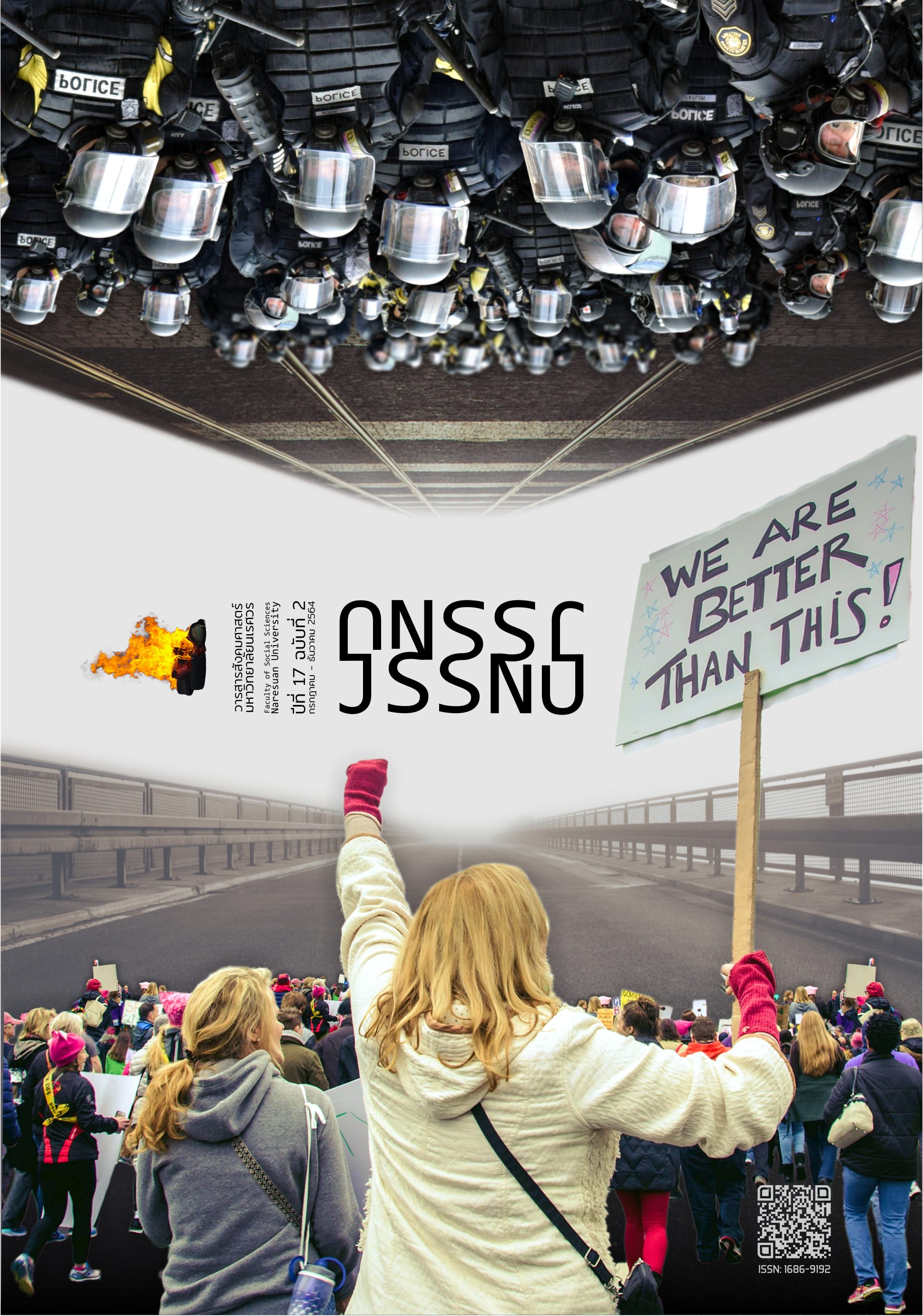Contentious Politics and Modern Political Thought: A Comparative Study of the Concepts of Politics and the Political in the Works of Hannah Arendt, Sidney Tarrow and Charles Tilly
Main Article Content
Abstract
This article aims to understand the concepts of ‘contentious politics’ by comparing the concepts of political violence, revolution, and civil disobedience in the work of Hannah Arendt to the practitioners of the structuralist approach, i.e., Sidney Tarrow and Charles Tilly. The comparative study result points out the highly divergent understanding of contentious politics and its relationship to politics amongst these two approaches. Arendt differentiates the concept of political violence from that of revolution and civil disobedience in terms of being in and out of the political sphere. That is to say, for Arendt, violence is defined by its opposition to politics because the practice of violence denies the freedom of action and speech. However, Arendt binds up the concepts of revolution and civil disobedience within the realm of politics, which brings about the various public activities. On the other hand, the structuralists show the relationship between contention, politics and collective action by focusing on the discontinuity of politics. In addition, other political thinkers also contribute a great deal to articulate the relationship between contentious politics and politics in various ways.
Downloads
Article Details
References
Akarapattananukul, Y. (2020). Sovereignty and political theology: From Plato’s theory of forms to Augustine’s idea of the will of god. Journal of Social Sciences, Naresuan University, 16(1), 1-19. https://doi.org/10.14456/jssnu.2020.1 [in Thai].
Agamben, G. (1995) We refugees. Symposium: A Quarterly Journal in Modern Literatures, 49(2), 114–119.
Arendt, H. (1958). The human condition. Chicago: The University of Chicago Press.
Arendt, H. (1963). Eichmann in Jerusalem: A report on the banality of evil. London: Penguin.
Arendt, H. (1969). On violence. New York: Harcourt.
Arendt, H. (1972). Crises of the republic. London: A Harvest Book.
Arendt, H. (1976). The origins of totalitarianism. New York: Harvest Book.
Arendt, H. (1994). Essays in understanding: 1930-1954: Formation, exile, and totalitarianism. New York: Schocken.
Arendt, H. (2005). Introduction into politics. In J. Kohn (Ed.), The promise of politics (pp. 93 – 200). New York: Schocken Books.
Arendt, H. (2006). On revolution. London: Penguin.
Baum, D., Bygrave, S., & Morton, S. (2011) Hannah Arendt ‘after modernity’. New Formation, 71(1), 6–13.
Dillinger, J. (2015). Tyrannicide from ancient Greece and Rome to the crisis of the Seventeenth century. In R. D. Law (Ed.), The Routledge History of Terrorism (pp. 15 – 27). Abingdon: Routledge.
Duarte, A. (2007). Hannah Arendt, biopolitics, and the problem of violence: From animal Labourans to Homo Sacer. In R. H. King & D. Stone (Eds.), Hannah Arendt and the uses of history: Imperialism, nation, race, and genocide (pp. 21–37). New York: Berghahn Books.
Greenberg, M. (2007). Concerning Hannah Arendt: She knew she was right. The Yale Review, 95(1), 74–100.
Hanagan, M., Moch, M., & Brake, W. (1998). Challenging authority: The historical study of contentious politics. In M. Hannagan, M. Moch, & W. Brake (Eds.), Challenging authority (pp. ix–xxix). Minneapolis: University of Minnesota Press.
Khompot, S. (2020). Politics of recognition: The social theory of Axel Honneth. Journal of Social Sciences, Naresuan University, 16(1), 85-118. https://doi.org/10.14456/jssnu.2020.4 [in Thai].
McAdam, D. (1982). Political process and the development of black insurgency, 1930-1970. Chicago: University of Chicago Press.
Mouffe, C. (2007). Artistic activism and agonistic spaces. Art and Research: A journal of Ideas, Contexts and Methods, 1(2), 1–5.
Moruzz, N. C. (2000). Speaking through the mask: Hannah Arendt and the politics of social identity. Ithaca: Cornell University Press.
Tarrow, S. (2013). Contentious politics. In D. A. Snow, D. D. Porta, B. Klandermans, & D. McAdam (Eds.), The Wiley-Blackwell encyclopedia of social and political movements (pp. 1–4). Oxford: Blackwell.
Tarrow, S., & Tilly, C. (2007). Contentious politics and social movements. In C. Boix & S. C. Stokes (Eds.), The Oxford handbook of comparative politics (pp. 435–460). Oxford: Oxford University Press.
Tilly, C. (2003a). The politics of collective violence. Cambridge studies in contentious politics. Cambridge: Cambridge University Press.
Tilly, C. (2003b). Large-scale violence as contentious politics. In W. Heitmeyer & J. Hagan (Eds.), International handbook of violence research (pp. 437–458). New York: Kluwer Academic Publishers.
Tilly, C., & Tarrow, S. (2015). Contentious politics. Oxford: Oxford University Press.


